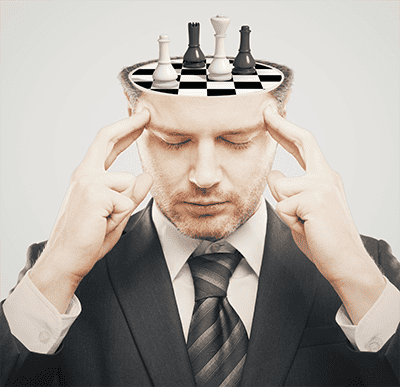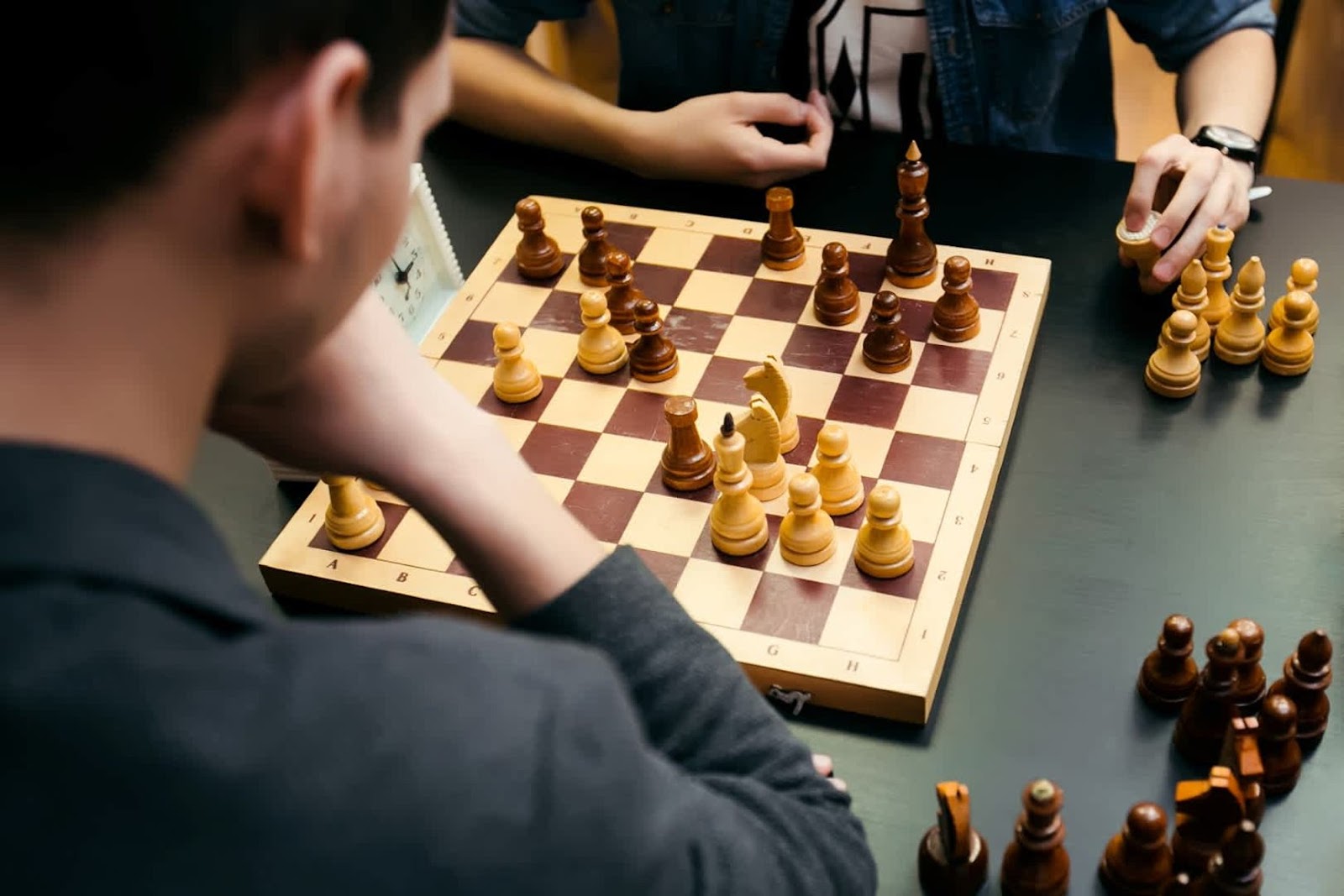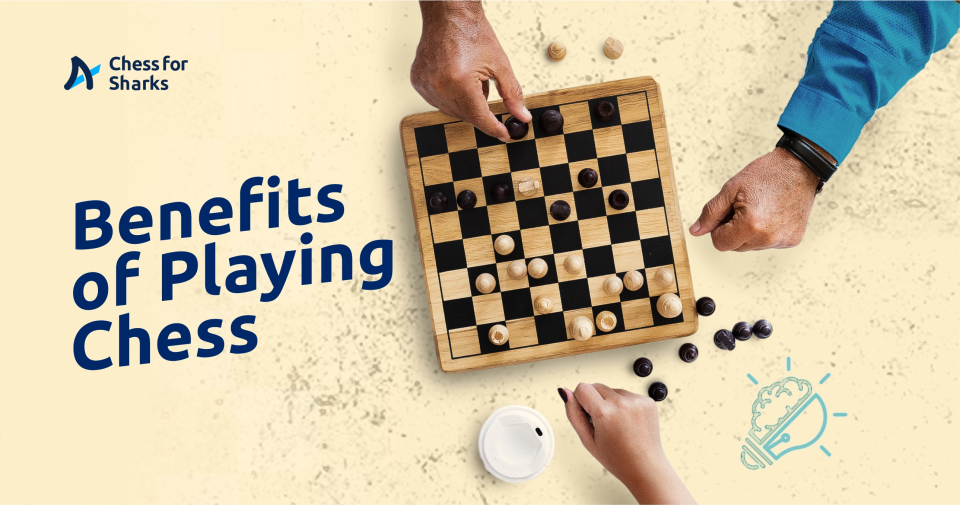Chess is one of the most popular board games in the world, and for good reasons. Even with its popularity, it is natural to question why individuals dedicate themselves to mastering this seemingly basic game.
For one, it presents an intellectual challenge unlike any other board game, and chess has long been associated with intelligence and the brilliance of great minds, which contributes to its elevated social status.
In this article, we will highlight some benefits of playing the royal game.

1. Chess Teaches Life Skills
As a direct imitation of life, chess teaches various life values, such as the consequences of small, seemingly inconsequential actions. You also learn how to handle losses in chess, which is an important life skill to have.
Chess teaches patience and the skill of planning and making strategic decisions, all of which are valuable life skills to possess.
2. Chess Improves Memory and Concentration

Chess requires players to maintain full attention, especially since a typical classical game exceeds an hour.
Playing chess teaches one the virtue of being patient in planning moves and strategizing to checkmate an opponent’s king.
Chess enhances visual memory, and it has been observed that expert players also excel in auditory memory.
For instance, a master-level player can recall a significant number of positions, demonstrating their exceptional memorization skills.
3. Chess Engages and Strengthens Both Hemispheres of the Brain

Chess stimulates both logical (left-brain) and creative (right-brain) functions, enhancing the connection and utilization of both hemispheres through regular play.
Chess also helps prevent Alzheimer’s and Dementia by keeping the brain active.
4. Chess Develops Problem-Solving Skills
Each position in a chess game is a fresh problem to solve, and such challenges that one encounters on the board are in direct similarity to real-life situations.
To solve each problem on the chessboard, one must analyze the situation and consider strategic moves to achieve the desired outcome.
5. Chess is a Social Game

Another important reason for playing chess is that it is a social game that requires multiple players. Chess can be played in a social setting, uniting individuals of varying ages and backgrounds.
All that is needed is a shared passion and connection to the game, so if you’re looking for a clan or community, you might just find it in chess.
6. Chess is an Important Educational Tool for Children
Chess is one of the most popular activities that involve children both intellectually and socially. With minimal initial expenses, chess offers a cost-effective learning platform for children from diverse backgrounds.
Initiatives like Tunde Onokoya’s Chess in Slum Africa are actively taking this approach, using chess as a starting point for social and humanitarian efforts.
7. Chess Teaches Hard Work and Discipline

Getting better at chess requires deliberate work and years of consistency. As a chess player, one benefit of playing the game is that you learn what it means to put effort into improving the game.
This life skill is also handy for other endeavours and life.
8. Playing Chess Can Be Financially Rewarding
Whether from chess tournament winnings or various other non-playing chess-related careers, chess can be a financial benefit to anyone who takes up the game.
Chess has now become a full-fledged financial industry, to the extent that the great General Atlantic has acquired a stake. So if you are a developer, a writer, or even a lawyer, you can use your skills to earn from the well of chess.
9. Chess Can Help Build Self-Confidence

Winning a game of chess is one of the best feelings in the world. Chess can help build a child’s self-confidence, as wins and achievements will enhance their self-esteem and improve their confidence.
10. Chess Promotes Sportsmanship and Fair Play
Chess, unlike most other sports, hammers down on the importance of sportsmanship and etiquette in playing. Chess players learn to lose and win with grace, even when the stakes are high, and sportsmanship is rarely lost.
11. Chess Can Help Reduce Stress (Or The Opposite)
Due to the nature of the game, a focused match can offer an escape from daily hassles and worries. Chess players also learn to stay calm under pressure, even when their king is under enemy fire.
Disclaimer: Beware of chess tilt, though.
12. Chess Enhances Creativity
Given the tactical nature of the game, chess players learn to think creatively and devise innovative strategies and ideas to outmaneuver their opponents. The creativity directly translates to other aspects of the player’s life.
13. Chess Enhances Time Management Skills
Time management is crucial in chess, as players must think quickly and efficiently under time constraints, especially in speed chess.
Playing chess teaches the importance of efficient time management, and as a chess player, one can develop their time management skills.
14. Chess Improves Decision-Making Under Pressure
Time scrambles and high-stakes decisions are the norm in chess games.
The ability to make good and stone-cold decisions even in high-risk situations is a skill you can pick up from the royal game and will be beneficial for careers in law, medicine, and business.
Final Words
The Benefits of playing chess are limitless, and we have only touched on a few in this article.
Apart from the intellectual benefits, the financial and social benefits of chess are valid reasons you should play the royal game.







join the conversation